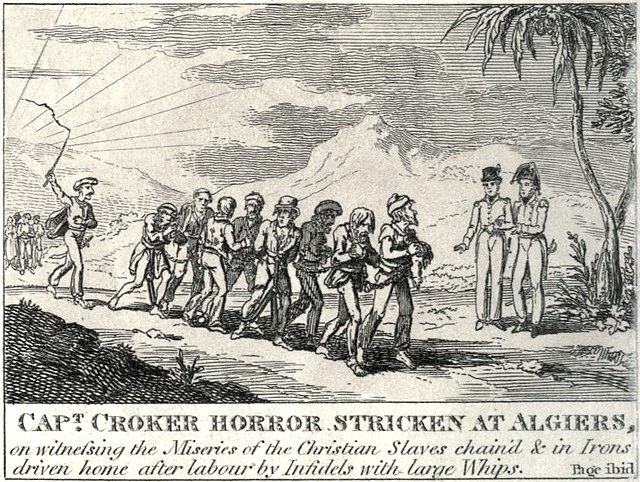
Please Follow us on Gab, Minds, Telegram, Rumble, Gab TV, GETTR, Truth Social, Twitter
Slavery just hit the 2024 campaign with vigor.
Florida’s Department of Education has injected a slavery concept that the enslaved learned trades that later benefited them in life. Republican Governor Ron DeSantis is defending that position and missing the overall mark of the dehumanizing commodification of slaves. That is misleading, but it is nothing compared to what Vice-President Kamala Harris’ reaction is doing to her on credibility.
She came out swinging in Florida denouncing the Florida policy, but she dropped the lead of her own personal story. Her ancestors in Jamaica owned African, Creole, and Irish slaves.
In 2020, I wrote the below piece for Just the News quoting Kamala Harris’ father’s admission that his ancestors owned slaves in Jamaica and completed a further investigation.
*******************************************
"My roots go back, within my lifetime, to my paternal grandmother Miss Chrishy (née Christiana Brown), descendant of Hamilton Brown, who is on record as plantation and slave owner and founder of Brown's Town," wrote Donald J. Harris in a 2018 essay for Jamaica Global.
Harris is an economist, scholar, and professor of economics, emeritus at Stanford University, according to his Stanford bio. And he is the father of Democratic vice-presidential nominee Kamala Harris.
"The Harris name comes from my paternal grandfather Joseph Alexander Harris, land-owner and agricultural 'produce' exporter (mostly pimento or all-spice), who died in 1939 one year after I was born and is buried in the church yard of the magnificent Anglican Church which Hamilton Brown built in Brown's Town (and where, as a child, I learned the catechism, was baptized and confirmed, and served as an acolyte)," added Donald J. Harris.
Hamilton Brown was born in County Atrium, Ireland in 1776. He owned several sugar plantations in Jamaica across St. Anne's Parish and represented the parish in the Jamaican House of Assembly for 22 years.
Hamilton owned over 1,100 slaves over the years.
According to Jamaican slave registers from the National Archives, London going back to the early 1800s, Hamilton owned babies as young as the one-month-old recorded in an 1817 registry.
In two slave registers excerpted from the archives, Hamilton swears to inventories of Creole and African slaves — identified by name, age, "color," and mother, if known — belonging to two of his plantations. One register lists 86 slaves, the other 124.
At the bottom of the lists, current as of June 28, 1817, Brown swears to their accuracy:
"I Hamilton Brown do swear that the above list and return consisting of two sheets is a true perfect and complete list and return, to the best of my knowledge and belief in every particular therein mentioned of all and every slaves possessed by me as owner, considered as most permanently settled, worked and employed in the Parish of Saint Ann ..."
Hamilton lent his name to Hamilton Town in St. Anne's Parish, which he founded and which is called Brown's Town today. Hamilton not only built St. Mark's Anglican Church, he is buried in its graveyard with an imposing statue.
After the U.K. Parliament passed the Slavery Abolition Act of 1833, the Slave Compensation Act, which compensated slave owners, was passed in 1837.
Caribbean plantation owners were opposed to the abolition of slavery. They were represented at the time by the London Society of West India Planters and Merchants, which fought in favor of slavery for decades in London.
The 1837 Act paid substantial sums of money to the former slave owners, but nothing to the liberated former slaves.
According to Legacies of British Slave-Ownership at the University College of London, Brown was awarded the equivalent of over $3 million in 2020 dollars for the slaves on his plantations in St. Anne Parish.
After the African slave trade was shut down by the U.K. parliament, Brown began to bring Irish immigrants to Jamaica. The Irish government stopped it because Brown was turning the Irish immigrants into slaves.
Subscribe to our evening newsletter to stay informed during these challenging times!!
Harris has replied that henceforth she wants to be replied to as "Master"....
They, like, wandered onto the plantation, (cackle), and like, we gave them shelter and food (cackle). In exchange, they like (cackle), offered to work in our fields out of gratitude". (cackle).
Cancel her please
It figures...but a day late and a dollar short.